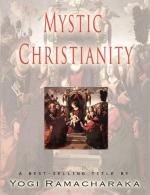The critics point to the fact that if Joseph were not the real father of Jesus, where would be the sense and purpose of proving his descent from David through Joseph? It is pertinently asked, "Why the necessity or purpose of the recital of Joseph’s genealogy, as applied to Jesus, if indeed Jesus were not truly the son of Joseph?” The explanation of the critics is that the earlier writings of Matthew contained nothing regarding the Virgin Birth, Matthew having heard nothing of this pagan legend, and that naturally he gave the genealogy of Jesus from David and Abraham. If one omits the verses 18-25 from Matthew’s Gospel, he will see the logical relation of the genealogy to the rest of the account—otherwise it is paradoxical, contradictory and ridiculous, and shows the joints and seams where it has been fitted into the older account.
“But,” you may ask, “what of the Messianic Prophecy mentioned by Matthew (1:23)? Surely this is a direct reference to the prophecy of Isaiah 7:14.” Let us examine this so-called “prophecy,” of which so much has been said and see just what reference it has to the birth of Jesus.
Turning back to Isaiah 7, we find these words, just a little before the “prophecy”:
“Moreover the Lord spake again unto Ahaz, saying, Ask thee a sign of the Lord thy God; ask it either in the depth, or in the height above. But Ahaz said, I will not ask, neither will I tempt the Lord. And he said, Hear ye now, O house of David; is it a small thing for you to weary men, but will ye weary my God also?” (Isaiah 6:13.)
Then comes the “prophecy”: “Therefore the Lord himself shall give you a sign; Behold a virgin shall conceive and bear a son and shall call his name Immanuel.” This is the “prophecy” quoted by the writer of the Gospel of Matthew, and which has been quoted for centuries in Christian churches, as a foretelling of the miraculous birth of Jesus. As a matter of fact, intelligent theologians know that it has no reference to Jesus at all, in any way, but belongs to another occurrence, as we shall see presently, and was injected into the Gospel narrative merely to support the views of the writer thereof.
It may be well to add here that many of the best authorities hold that the Greek translation of the Hebrew word “almah” into the equivalent of “virgin” in the usual sense of the word is incorrect. The Hebrew word “almah” used in the original Hebrew text of Isaiah, does not mean “virgin” as the term is usually employed, but rather “a young woman of marriageable age—a maiden,” the Hebrews having an entirely different word for the idea of “virginity,” as the term is generally used. The word “almah” is used in other parts of the Old Testament to indicate a “young woman—a maiden,” notably in Proverbs 30:19, in the reference to “the way of a man with a maid.”




